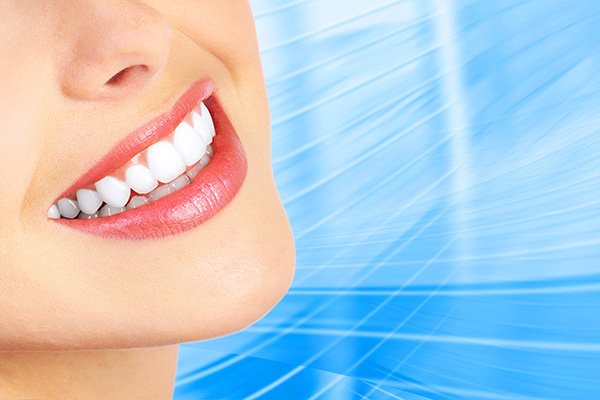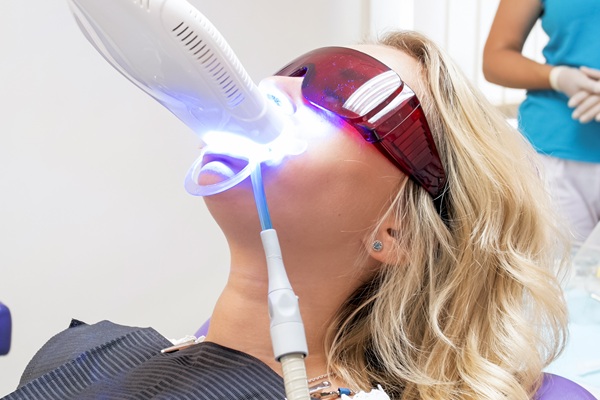What Can Happen After a Chipped Tooth?

A chipped tooth typically occurs during an unexpected moment. As a result, many are not prepared for it and do not know what to do after it occurs. Whether you or someone you know has chipped a tooth and needs advice or you want to know what to expect if it should happen to you, you can find out what you need to know in this guide.
What to expect after a chipped tooth
It is essential to seek prompt treatment after a chipped tooth to prevent more severe oral health concerns from developing. Every person who suffers a chipped tooth has a unique experience, but understanding what a chipped tooth means and what the risks are if left untreated can be helpful.
The definition of a chipped tooth
A chipped tooth is a type of dental trauma in which a part of the tooth is knocked or chipped off the tooth. The level of severity can vary from minor damage that is hard to notice to a more severe chip that extends toward the root of the tooth. The more severe the chip, the higher the risk of more severe oral health complications developing.
The risks of an untreated chipped tooth
Avoiding dental treatments can lead to oral health complications such as:
- Severe and chronic pain
- Gum swelling and bleeding
- Increased risk of an oral infection
- Loose teeth and tooth loss
- Cosmetic concerns
Regardless of the severity of the initial symptoms, it is encouraged to visit the dentist after tooth damage occurs. Otherwise, gum and teeth concerns may develop, and a tooth infection could develop, leading to a need for more invasive and expensive treatment.
How a dentist can treat a chipped tooth
Often, the earlier that a dentist can treat a chipped tooth, the less invasive the treatment is. Initially, the dentist will treat the initial symptoms, such as gum swelling and bleeding, pain and tooth sensitivity.
They can also treat the chip directly on the first visit as well. The most common treatment options for a chipped tooth include a dental veneer, composite bonding and a dental crown. One may be preferable to another, depending on the location and severity of the chip. For example, a minor chip to a front tooth can be repaired more affordably with dental bonding, whereas severe damage to a molar likely requires a dental crown.
Tips for preventing a chipped tooth
Prevention is the ultimate goal. Although accidents sometimes occur, people can reduce their risk of a chipped tooth by wearing a mouthguard while having bruxism, playing sport or being around construction zones and dangerous scenarios that may result in a blow to the face.
Learn more about chipped tooth treatment today
Our dental team has experience treating chipped teeth. If you have a chipped tooth and need prompt treatment to prevent worsening symptoms, then give us a call today to schedule a visit for chipped tooth restoration.
Request an appointment here: https://bloomfield.ismiledentalcarenj.com or call iSmile Dental Care of Bloomfield at (862) 702-5234 for an appointment in our Bloomfield office.
Check out what others are saying about our dental services on Yelp: Chipped Tooth in Bloomfield, NJ.
Recent Posts
Laser dentistry is a modern practice used for a number of dental procedures, ranging from root canals to oral cancer screenings. One of the most common laser dentistry procedures is gum reshaping, which has grown in popularity for both cosmetic and restorative purposes. When gum reshaping is chosen for cosmetic purposes, patients are typically hoping…
A tooth filling, also known as a dental filling, is one of the most popular ways to restore teeth that are in bad shape due to decay, injury, or imperfections. They have been the standard for rebuilding teeth for as long as dentistry has existed. The procedure of placing a tooth filling is simple, quick,…
A sedation dentist can keep your next dental procedure free of stress and anxiety. This dental professional can calm and relax you before, during, and after your dental procedure. Getting your dental treatments will be easier with the help of a sedation dentist. If you want to know more about sedation dentists near you, here…
Implant-supported dentures are an excellent choice for patients who want a durable and easy option for replacing lost teeth. This restoration allows patients to enjoy their favorite meals once again and go about their regular activities with the denture securely in place. There is no need to worry about the dentures slipping or coming loose…


